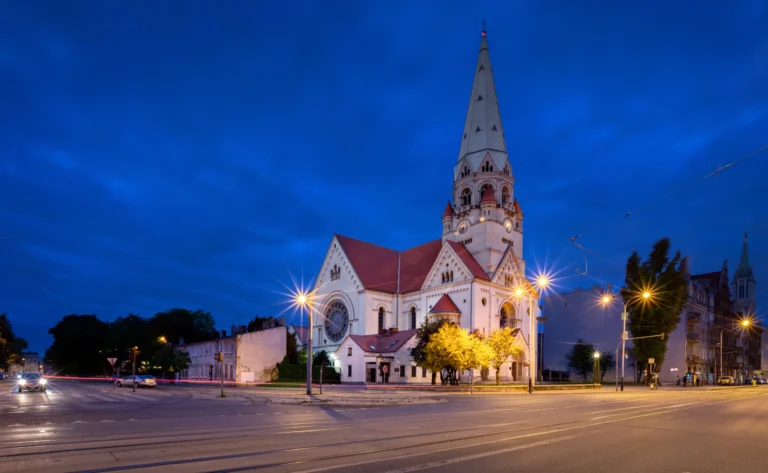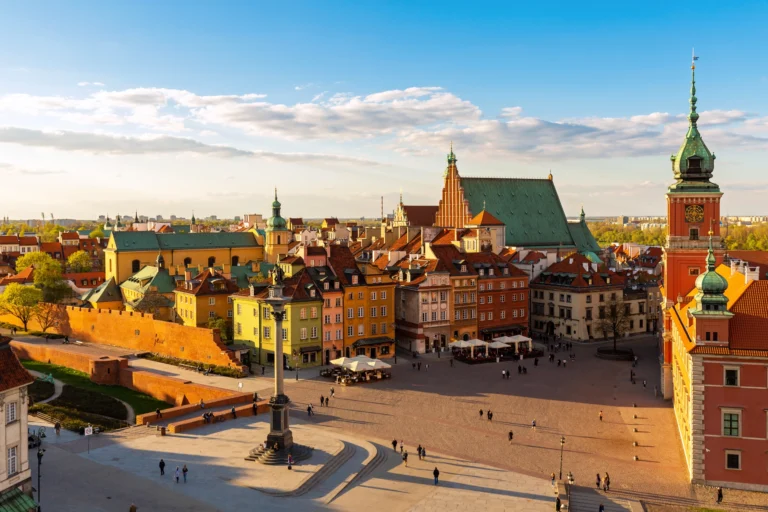Kraków
Kraków, a city with over 1000 years of history, is the former capital and
one of the most significant cultural and economic centers in Poland.
Located on the Vistula River in southern Poland, Kraków is a charming
destination that offers visitors an enchanting mix of history, culture,
and vibrant energy.
The city’s rich past can be traced back to the 7th century when it was
founded as a medieval settlement. Over the centuries, Kraków flourished as
a significant center of learning, trade, and politics, with its royal
court attracting scholars, artisans, and merchants from all over Europe.
The city played a pivotal role in Polish history until 1611 when it was
superseded by Warsaw as the official capital.
Kraków’s architectural beauty is evident in its well-preserved medieval
structures, Renaissance buildings, and impressive Baroque landmarks. Some
of the city’s most iconic attractions include:
- Wawel Castle – A symbol of Polish statehood, this 14th-century castle
served as the royal residence for many centuries and houses the National
Crown Treasury, which displays Poland’s historical regalia and priceless
artifacts. - Kraków’s Old Town – A UNESCO World Heritage site, the city’s
picturesque Old Town is characterized by cobblestone streets, charming
market squares, and beautifully preserved Gothic, Renaissance, and Baroque
buildings. - St. Mary’s Basilica – An outstanding example of Gothic architecture,
this 14th-century church is famous for its intricate wooden altar and the
Kraków Barbican, a historic fortified gate that was once part of the
city’s defensive system. - Wieliczka Salt Mine – A UNESCO World Heritage site, this 13th-century
mine features an impressive network of underground chambers and tunnels
adorned with intricate statues and sculptures carved from salt. - Kazimierz – Once an independent Jewish town, this former suburb is now
a trendy neighborhood known for its vibrant street art, lively cafes, and
rich cultural history.
Kraków’s thriving cultural scene includes numerous museums, galleries,
theaters, and concert halls that showcase Poland’s artistic and
intellectual heritage. Visitors can explore institutions like the National
Museum, the Kraków Philharmonic, and the Jagiellonian University, one of
Europe’s oldest universities, founded in 1364.
The city is also renowned for its delicious cuisine, with traditional
Polish dishes such as pierogi (stuffed dumplings), kielbasa (Polish
sausage), and żurek (sour rye soup) served at local eateries and markets.
Additionally, Kraków’s vibrant nightlife scene offers an array of bars,
clubs, and live music venues that cater to diverse tastes and preferences.


